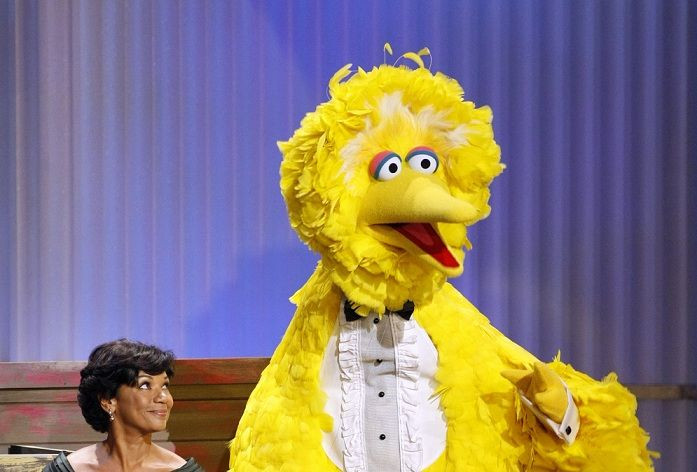Big Bird’s Salary Is $314K, But Don't Call Him A 1 Percenter

The actor who has played Big Bird for more than 40 years is building himself quite the nest egg.
According to the latest Form 990 from Sesame Workshop, the educational nonprofit behind PBS’ “Sesame Street,” Big Bird puppeteer Caroll Spinney was compensated $314,072 in 2010. Spinney, who has been with the show since its inception, also provides the voice and puppet work for Oscar the Grouch.
As a tax-exempt nonprofit organization, Sesame Workshop is required to make its financial information public. The latest form, archived on the website GuideStar and posted by the Atlantic Wire on Tuesday, includes a detailed rundown of the organization’s expenses and revenues, as well as the salaries of its key personnel.
Despite the expected backlash from critics claiming that Spinney's pay makes Big Bird a One Percenter, his salary is still significantly below the minimum $516,633 salary necessary for inclusion in a list of the top 1 percent of Americans.
In fact, Spinney is not even the highest paid muppeteer on the Sesame roster. Joseph Mazzarino, a veteran puppet master who has been with the series since 1990, received $556,165 in compensation in 2010. On “Sesame Street,” he performs the voices of Murray, Stinky the Stinkweed, the Two-Headed Monster, Papa Bear and an Elephant in a tutu. He has also directed several episodes.
Spinney and Mazzarino are the only two performers whose compensation is listed on the form, meaning that the remainder of the cast is paid significantly less. Nonprofit organizations are not required to list compensation for employees making under $100,000.
According to the 990 tax form, the highest paid person at Sesame Workshop in 2010 was president and CEO Gary Knell, who was compensated $988,456. Knell has since left the organization to become the new CEO of National Public Radio. He was replaced by H. Melvin Ming, who had been Sesame’s chief operating officer.
Executive compensation for large nonprofits has received increasing scrutiny in recent years. In September, the Chronicle of Philanthropy released a report showing that the number of nonprofit executives earning more than $1 million is on the rise, increasing from 15 to 20 executives in the last year. Arts and cultural nonprofits whose top execs are in the million-dollar club include Lincoln Center, the Museum of Modern Art and the Kennedy Center in Washington, D.C.
Ken Berger, president of the nonprofit watchdog group Charity Navigator, told Bloomberg that donors are often “outraged” to learn of the exorbitant salaries.
Nonprofits contend that they must pay wages comparable to the for-profit sector if they want to retain top talent. However, even in comparison to for-profit children’s TV, Spinney is highly paid. Caitlin Sanchez, the actress who voices the title character on Nickelodeon’s “Dora the Explorer” -- one of the most popular kids’ shows on TV -- made $300,000 over three years in 2010, according to TMZ. Still, it’s worth mentioning that Spinney has been with “Sesame Street” for more than four decades.
Nonprofit organizations receive funding from a variety of sources -- including individual donations, corporate support, fundraising events and government grants. Many also receive earned income through taxable revenue streams such as advertising and merchandising.
Despite the post-debate hype surrounding Mitt Romney’s comment that he would end federal support for PBS, federal funds represent only about 2 percent of Sesame Workshop’s total budget. In 2011, the Corporation for Public Broadcasting awarded “Sesame Street” $1.25 million through a National Program Service grant to PBS. However, the show’s total operating revenue that year was $132 million, which included almost $50 million in licensing revenue for “Sesame Street” toys and other merchandise.
How’s that for a sunny day?
© Copyright IBTimes 2024. All rights reserved.






















